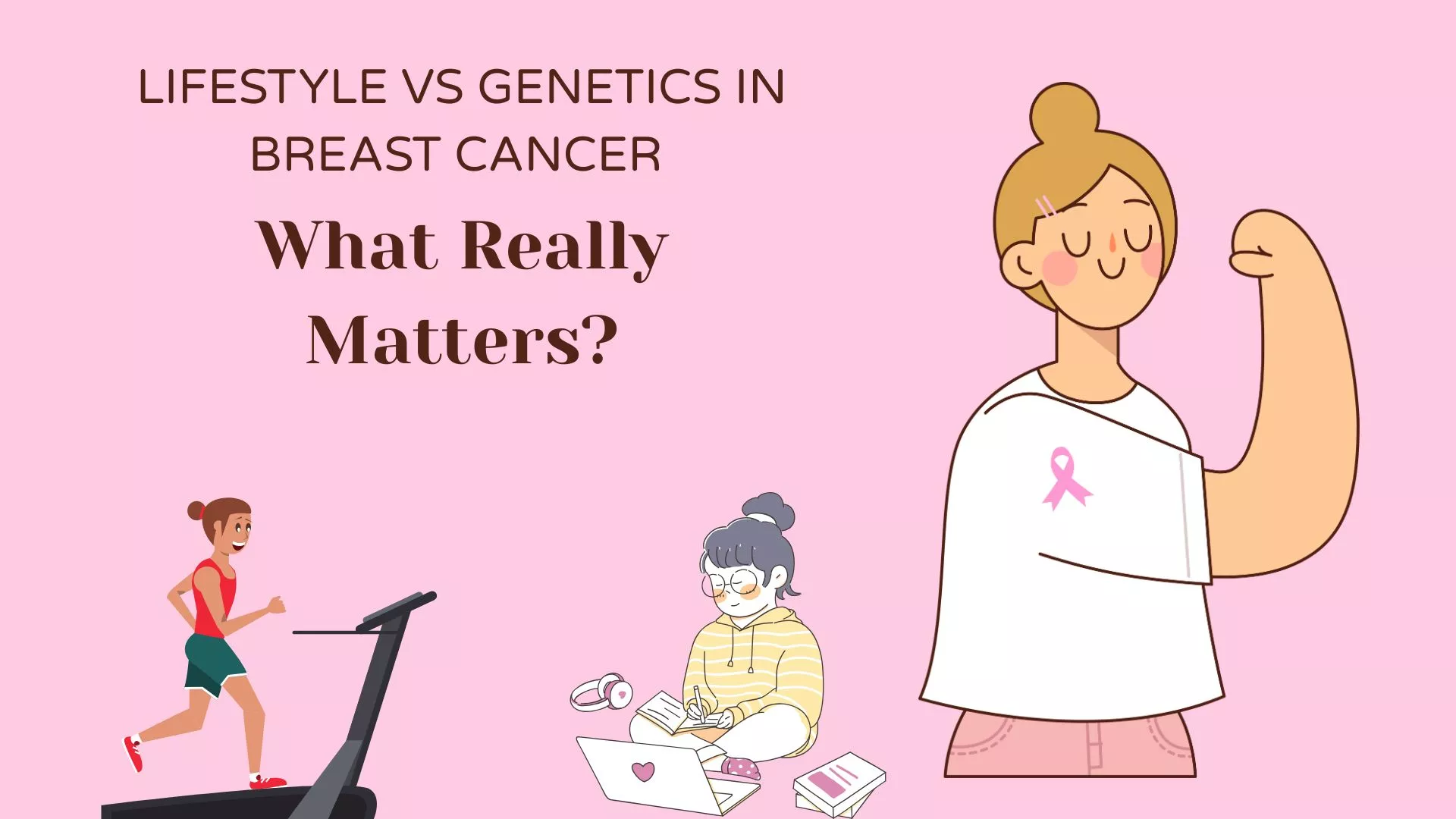Breast cancer is one of the most common cancers affecting women worldwide. As awareness increases, many people are asking an important question: Is breast cancer caused more by genetics or lifestyle choices? The answer isn’t always simple, but understanding the roles that both play can empower you to make informed decisions about your health.
The Genetic Connection
When most people think of breast cancer and genetics, they often think of the BRCA1 and BRCA2 genes. These are the most well-known genetic mutations linked to an increased risk of breast and ovarian cancers. Women who carry these mutations have a significantly higher lifetime risk of developing breast cancer—up to 70% by age 80, compared to about 13% in the general population.
However, only about 5–10% of all breast cancer cases are considered hereditary. This means that a relatively small number of people are affected due to a direct genetic mutation passed down from their parents. Other less common genes may also contribute, but they tend to have a smaller effect on risk.
If you have a strong family history of breast cancer, especially if it appears in multiple generations or occurs at a young age, it’s worth discussing genetic testing with the oncologist or genetic counsellors.
Lifestyle Factors: The Bigger Picture
While we can’t change our genes, we caninfluence our lifestyle—and this is where the majority of breast cancer risk lies. Studies suggest that up to 40% of breast cancer casescould potentially be prevented through lifestyle changes.
Here are some of the key lifestyle factors that play a role:
- Alcohol consumption: Even small amounts of alcohol can increase breast cancer risk. The risk rises with the amount consumed.
- Physical activity: Regular exercise helps reduce risk by regulating hormones and maintaining a healthy weight.
- Diet: A diet rich in fruits, vegetables, whole grains, and healthy fats may help reduce inflammation and support overall health. Reducing processed foods and saturated fats is also beneficial.
- Obesity and weight gain after menopause: Excess body fat increases estrogen levels, which may fuel the growth of some breast cancers.
- Smoking: There’s growing evidence that smoking, particularly starting at a younger age, is linked to an increased risk of breast cancer.
- Hormone replacement therapy (HRT): Long-term use of combined HRT (estrogen and progesterone) after menopause has been linked to a higher risk of breast cancer.
So, Which Matters More?
The truth is, both genetics and lifestyle matter—but for most people, lifestyle has a much larger impact. While we can’t change our genetic makeup, we can make proactive choices every day that reduce our risk of developing breast cancer.
Even those with a genetic predisposition can benefit greatly from healthy habits. For instance, a woman with a BRCA mutation who maintains a healthy lifestyle may delay the onset of cancer or lower her risk altogether. Similarly, for women without any known genetic risk, poor lifestyle choices can still significantly increase the likelihood of developing breast cancer.
The Importance of Screening and Early Detection
Regardless of your genetic risk or lifestyle habits, screening saves lives. Regular mammograms and clinical breast exams can detect cancer early—when it's most treatable. Women should talk to their doctors about the right screening schedule for them, especially if they have a family history of breast or other cancers.
Taking Control: What You Can Do Today
Here are a few steps anyone can take to reduce their risk and support breast health:
- Eat a balanced diet with plenty of fiber, lean proteins, and healthy fats
- Limit alcohol to no more than one drink per day—or avoid it altogether
- Get at least 150 minutes of moderate exercise per week
- Maintain a healthy weight, especially after menopause
- Don’t smoke, and seek help quitting if you do
- Stay informed about your family history and speak with a doctor about genetic testing if needed
Final Thoughts
While we can’t change our genes, we do have power over our daily habits. Understanding how both lifestyle and genetics influence breast cancer can help us take proactive steps toward prevention and early detection. Whether or not breast cancer runs in your family, healthy living is always worth the effort—for your breasts and your whole body.







